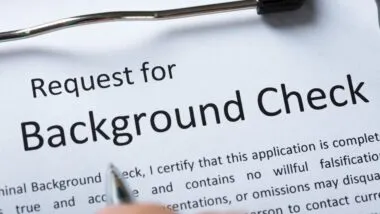 A California woman recently filed a lawsuit against Capital One, alleging that she received a slew of Capital One robo calls that violated the parameters of the Telephone Consumer Protection Act (TCPA).
A California woman recently filed a lawsuit against Capital One, alleging that she received a slew of Capital One robo calls that violated the parameters of the Telephone Consumer Protection Act (TCPA).
The plaintiff, Anthalanette A., alleges that she began receiving these Capital One robo calls in 2017, which continued through 2018. She claims the calls were placed to collect an alleged debt and were placed in such a continuous and constant manner as to be considered harassment.
Several times, Anthalanette claims she spoke with a representative of the company to ask that the Capital One robo calls stop.
However, she says the Capital One robo calls kept coming—the TCPA lawsuit alleges that these calls were placed regularly. In response, Anthalanette turned to litigation, alleging that Capital One placed these calls in willful and knowing violation of the TCPA.
Anthalanette filed her Capital One robo calls lawsuit on July 13, 2018, in the U.S. District Court for the Western Division of the Central District of California. The lawsuit was filed under the Telephone Consumer Protection Act and the Rosenthal Fair Debt Collection Practices Act.
Telephone Consumer Protection Act
The Telephone Consumer Protection Act, or TCPA, is a set of regulations meant to protect consumers from unwanted solicitation through technology, through robo calls and pre-recorded messaging systems. The TCPA was introduced back in 1991, and though technology has evolved since then, the law has been updated to include SMS text messaging on top of more traditional unwanted robo calls.
Reporting TCPA Violations
Reporting violations of the TCPA or filing a lawsuit can help force companies like ADT and countless others to comply with TCPA regulations. Reports of violations may also grant consumers award money per individual violation.
These kinds of TCPA violations are extremely common—so common that many consumers are used to it, and may not even know that these practices are illegal. According to the Federal Communications Commission, or FCC, the agency received more than 215,000 individual TCPA complaints in the year 2014 alone.
If you have received unwanted robo calls or prerecorded messages from Capital One or another company, even in an attempt to collect a debt, without having given prior express permission, you should be able to report these violations or file a lawsuit and receive compensation.
Unwanted robo calls or texts in willful or knowing violation of the TCPA may be subject to fine of $500, but a violation made in willful or knowing violation of the TCPA can increase that fine to up to $1,500.
In order for your TCPA claims to be most effective, you will need to provide proof of these violations. Keep messages and phone records of the unwanted solicitation calls placed to your phone.
The Capital One Robo Calls Lawsuit is Case No. 2:18-cv-06102, in the U.S. District Court for the Western Division of the Central District of California.
Join a Free TCPA Class Action Lawsuit Investigation
If you were contacted on your cell phone by a company via an unsolicited text message (text spam) or prerecorded voice message (robocall), you may be eligible for compensation under the Telephone Consumer Protection Act.
ATTORNEY ADVERTISING
Top Class Actions is a Proud Member of the American Bar Association
LEGAL INFORMATION IS NOT LEGAL ADVICE
Top Class Actions Legal Statement
©2008 – 2026 Top Class Actions® LLC
Various Trademarks held by their respective owners
This website is not intended for viewing or usage by European Union citizens.














